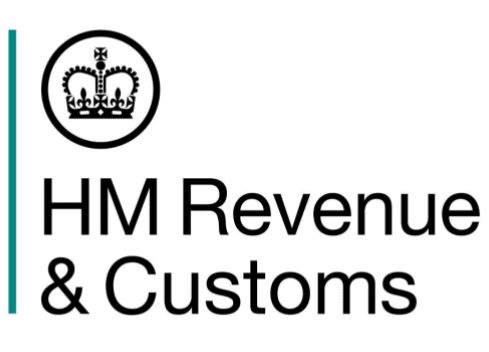Tax on Shares – How Are Stocks Taxed When You Buy Them?
A lot of first-time investors are unaware that they need to pay tax on shares. In fact, there are two tax liabilities in particular that you need to be aware of – capital gains tax and dividends tax. The good news is that you will only need to pay tax on your ‘profits’ – much like you would when you sell a property.
In this guide, we explain everything there is to know about tax and shares. As always, it’s best to consult a qualified tax specialist before taking the plunge, albeit, we hope this guide helps clear the mist.
-
-
Step 1: Understanding the tax on shares
Before we get started, it is important to note that all UK investors have the chance to shield a proportion of the tax they pay on shares through an ISA. We explain the ins and outs of how this works later on.
Capital Gains
 Nevertheless, the first tax on shares that you need to be made aware of is that of ‘capital gains’. In its most basic form, capital gains refers to the amount of money that you make from an investment. This only kicks in when the shares have been sold.
Nevertheless, the first tax on shares that you need to be made aware of is that of ‘capital gains’. In its most basic form, capital gains refers to the amount of money that you make from an investment. This only kicks in when the shares have been sold.For example:
- Let’s say that you buy £10,000 worth of BP shares in 2020
- In 2025, the shares are worth £25,000
- You decide to sell the shares, meaning that you make £15,000
This £15,000 is what is known as capital gains. However, had you not sold the shares and instead keep hold of them, the capital gains would not have yet been realized.
Dividends
On top of capital gains, HMRC is also interested in the gains you make from dividends. For those unaware, dividends are paid by some companies as a means to share their profits with stockholders. The amount that you get will be determined by the number of shares you hold.
Much like the money you make through capital gains, you will need to pay tax on your dividend payments. As we cover shortly, UK investors are able to earn £2,000 per year in dividends without paying any tax – which is in addition to your ISA allowance.
Stock CFDs and Spread Betting
There is often some confusion regarding tax liabilities on stock CFDs and spread betting. Regarding the former, profits made from stock trading in the form of CFDs will be liable for capital gains tax. On the other hand, trading via a spread betting facility will not be liable for any tax at all – as the phenomenon is viewed as gambling. As the UK does not charge tax on gambling winnings, spread betting is tax-free.
UK Stamp Duty
HMRC charges stamp duty every time you buy shares. This stands at 0.5% of the amount you purchase. For example, if you buy £5,000 worth of HSBC shares, your stamp duty will amount to £25. The broker will deduct this amount from the purchase automatically, so there is no need to declare this yourself. Not even ISAs allow you to avoid stamp duty, as it is payable by all UK investors!
Step 2: Understanding ISAs
Make no mistake about it – it is absolutely crucial that you make full use of an ISA when investing in stocks and shares, as this will allow you to shield some of your tax obligations from HMRC. We’ll explain the ins and outs of how ISAs work before discussing nominal tax rates on capital gains and dividends – as there is every likelihood that the ISA will exempt all of your annual profits.
What is an ISA?
Put simply, an Individual Savings Account (ISA) allows you to shield some of the profits you make when investing in stocks and shares. The initiative was launched by the UK government as a means to encourage everyday consumers to invest in the financial markets.
There are five variations of ISAs in the UK – which includes
- Cash ISAs
- Help to Buy ISAs
- Lifetime ISAs
- Innovative Finance ISAs
- Stocks and Shares ISAs
However, for the purpose of this tax on shares guide, we are going to focus exclusively on a Stocks and Shares ISA.
How do Stocks and Shares ISAs work?
In a nutshell, a Stocks and Shares ISA allows you to invest up to £20,000 per year – with the subsequent investments being shielded from capital gains and dividend tax. This figure is reviewed every year, albeit, the 2021/22 financial year will also stand at £20,000.
Nevertheless, let’s suppose that you invested the full £20,000 into UK dividend stocks. Throughout the year, you made £1,000 in dividend payments. This £1,000 would subsequently be earned on a tax-free basis, as the ISA shields your obligations.
Similarly, let’s suppose that you sold the dividends stocks a few months later at a higher value of £23,000. As long as you re-invested the full amount within your Stocks and Shares ISA – once again, this would be shielded from the tax man.
Getting set up with an ISA
It is important to quickly note that ISAs are nothing more than a dedicated stocks and shares account that you open with a stock broker. For example, let’s suppose that you were to open a share dealing account and then deposit £30,000.
The first £20,000 would be placed into your Stocks and Shares ISA account, and the remaining £10,000 in your standard brokerage account. The only difference between the two is that the former will be shielded from capital gains and dividends tax!
Step 3: Understanding what tax rate you pay on shares?
So now that you know how ISAs work, we now need to explore how much tax HMRC places on your stocks and shares profits.
Capital Gains – 10% or 20%
As we covered earlier, your capital gains are based on the profit you made when you sold your shares. There are two different rates charged by HMRC – and the one you pay is dependent on your income tax band.
- If you are a basic-rate taxpayer, then you will be subject to a 10% tax on your capital gains.
- For everyone above the basic-rate, you will be subject to a 20% tax on your capital gains
The good news is that even if your stocks and shares are held outside of an ISA, you will still be entitled to £12,300 of tax-free gains in the 2020/21 tax year (up from £12,000 the year prior). Moreover, couples are allowed to pool this allowance together -subsequently giving you £24,600 in capital gains exemptions.
Dividends Tax – 7.5% – 38.1%
UK investors benefit from one of the most favourable dividend tax rates globally. Well, at least if you are a basic-rate taxpayer. If you are, you will pay just 7.5%.
Higher-rate and Additional-rate taxpayers are charged 32.5% and 38.1%, respectively. With that said, all UK investors are able to earn £2,000 in dividends without paying any tax. Everything after that will fall into one of the aforementioned brackets.
Personal Allowance
It is also important to make reference to the personal allowance that all UK taxpayers get. In the 2020/21 tax year, this stands at £12,500.
Let’s look at a quick example of how this impacts your stocks and shares tax liability.
- You earn £15,000 per year from your full-time job
- You make £5,000 in capital gains
- You make £4,000 in dividend payments
- Your total income is £24,000
However, as you get a personal allowance of £12,500, your total income for tax purposes is £11,500. Then, you also get £2,000 in tax-free income from your dividends. This leaves you with £2,000 in taxable dividend income and £4,000 in capital gains. Regarding the latter, you also have your £12,300 capital gains exemption. Alternatively, you would also be protected if you held the shares in an ISA!
The Verdict?
Ultimately, there are simply too many variables to take into account when attempting to calculate what you might owe to HMRC, so it’s always best to consult with a qualified tax adviser. The good news is that unless you are investing significant amounts of money into stocks and shares, there is every chance that you will not be liable for tax. However, it is imperative that you check this out with a professional.
Kane Pepi
Kane Pepi is a British researcher and writer that specializes in finance, financial crime, and blockchain technology. Now based in Malta, Kane writes for a number of platforms in the online domain. In particular, Kane is skilled at explaining complex financial subjects in a user-friendly manner. Academically, Kane holds a Bachelor’s Degree in Finance, a Master’s Degree in Financial Crime, and he is currently engaged in a Doctorate Degree researching the money laundering threats of the blockchain economy. Kane is also behind peer-reviewed publications - which includes an in-depth study into the relationship between money laundering and UK bookmakers. You will also find Kane’s material at websites such as MoneyCheck, the Motley Fool, InsideBitcoins, Blockonomi, Learnbonds, and the Malta Association of Compliance Officers.
 In a nutshell, a Stocks and Shares ISA allows you to invest up to £20,000 per year – with the subsequent investments being shielded from capital gains and dividend tax. This figure is reviewed every year, albeit, the 2021/22 financial year will also stand at £20,000.
In a nutshell, a Stocks and Shares ISA allows you to invest up to £20,000 per year – with the subsequent investments being shielded from capital gains and dividend tax. This figure is reviewed every year, albeit, the 2021/22 financial year will also stand at £20,000.